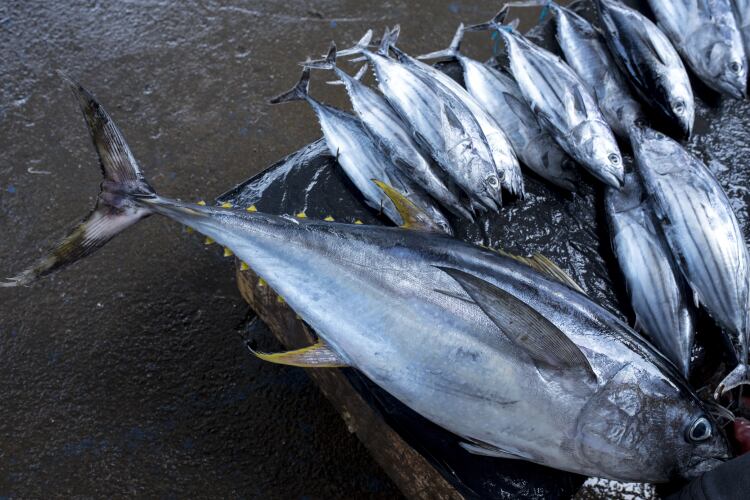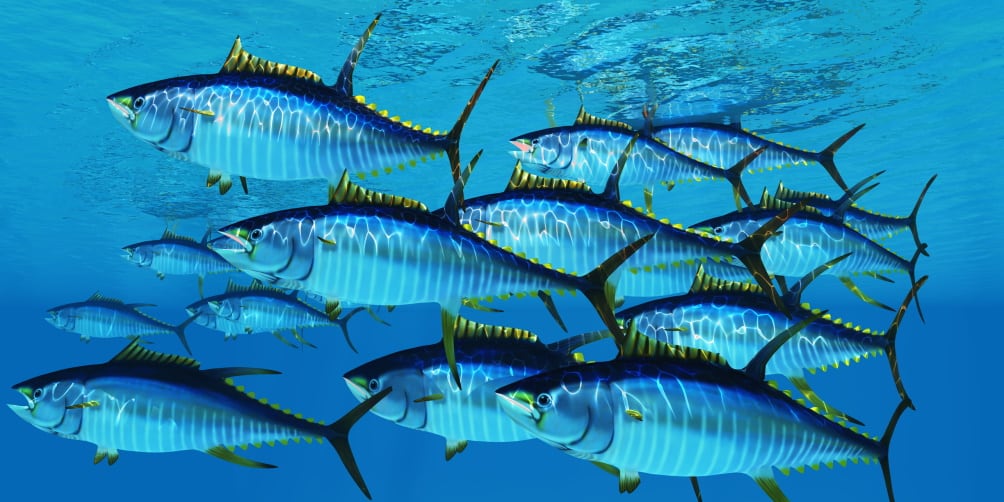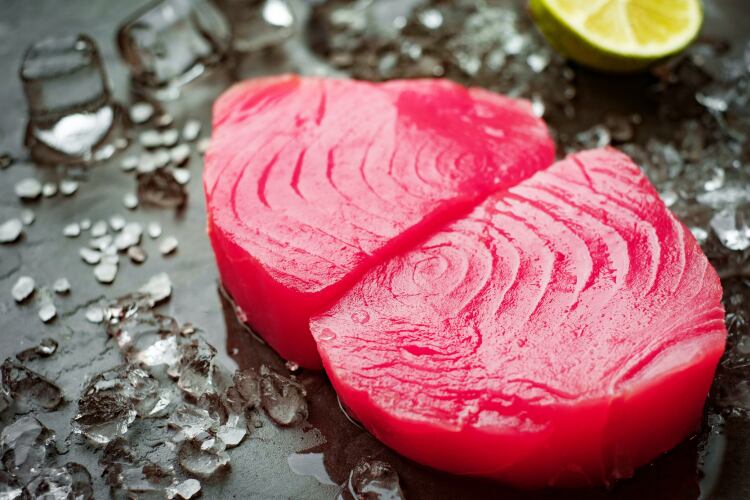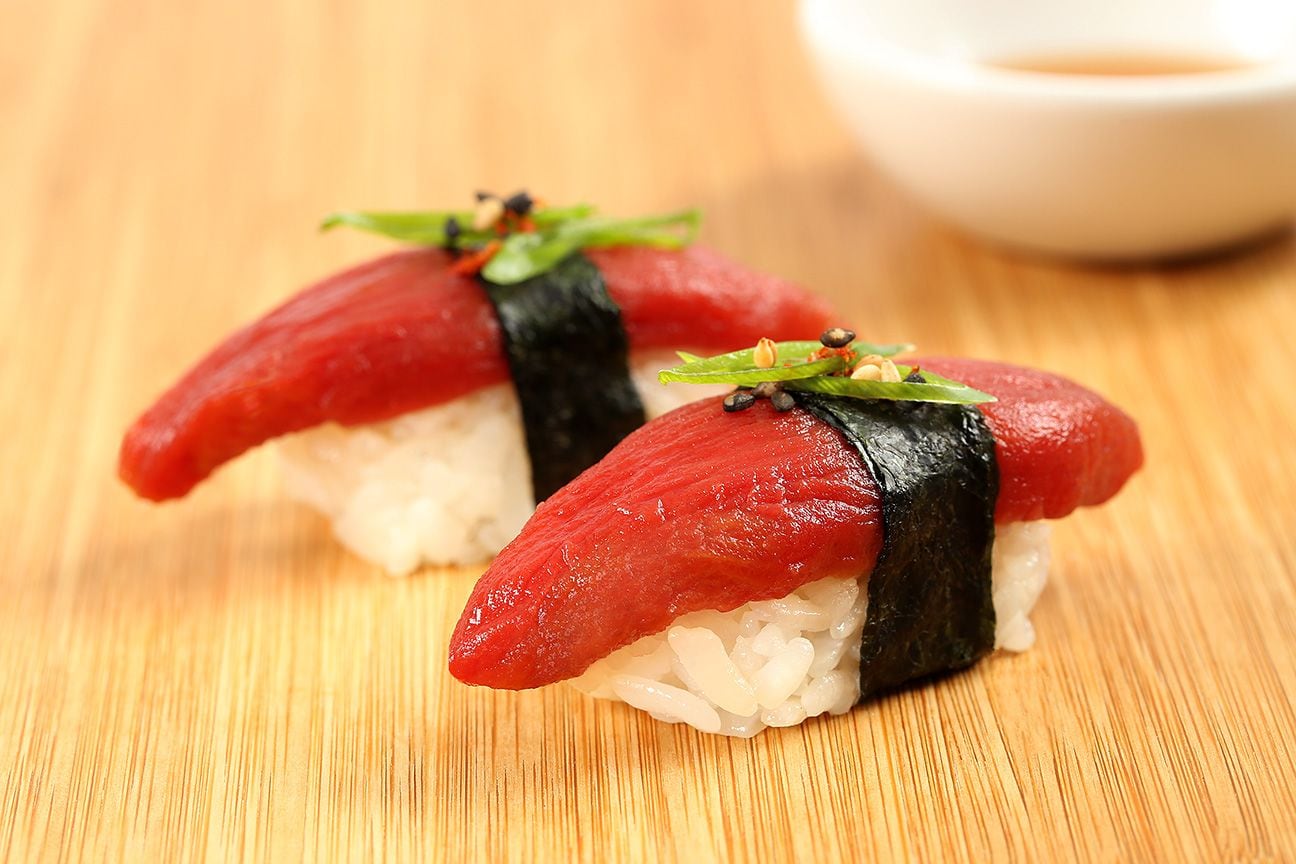Stocks of yellowfin tuna in the Indian Ocean are on a knife-edge. Forecasts from Planet Tracker predict that, if things carry on as they are, ‘collapse’ – defined as a 70% reduction in biomass over a decade – will take place by 2026.
Found in the subtropical and tropical areas of the Atlantic, Indian and Pacific Oceans, yellowfin tuna accounts for almost 30% of the total catch for all tuna species. In 2019, 424,226 tonnes of yellowfin was harvested in the Indian Ocean. But for the species to remain viable, a 20% reduction in catch from 2014 levels is needed, according to the non-profit.
“This is a problem which has been brewing for some time - yellowfin tuna in the Indian Ocean is overfished… and has been designated as such since 2015 by the [FAO’s Indian Ocean Tuna Commission] IOTC,” Archie Cage, Planet Tracker Research Associate, told FoodNavigator.
It isn’t just overfishing that is threatening fish stocks, although a reduction in catch is the only feasible route to save them. “Both fishing overcapacity and climate change are known to negatively affect the regenerative ability of fish stocks. One of the key points… has been the harvest of juvenile yellowfin tuna, especially around Fish Aggregation Devices (FADs). Removal of these young fish before they are able to reproduce undercuts the resilience and resistance of the stock against overfishing. It can be more accurately described as a slow decline, which has now quietly slipped below the waves into more treacherous territory,” Cage warned.
Under a business-as-usual scenario, the biomass of female yellowfin tuna able to reproduce will fall by 91% between 2016 and 2026, Planet Tracker revealed. This would lead to a ‘significant’ decline in spawning biomass and an 80% reduction in catch by 2026.
If stocks collapse, fishing for yellowfin tuna would become unprofitable. This, Planet Tracker warned, could have a knock-on impact on skipjack tuna – the most commonly fished tuna species – as fisheries switch to catching this species. The thinktank noted that juvenile yellowfin are ‘often inadvertently caught’ by skipjack fisheries, potentially further exasperating pressure on breeding-age stocks of yellowfin.

IOTC delays yellowfin conservation decision
The need for action is pressing and, Planet Tracker believes, ‘the solution is clear’.
A 20% reduction in catch must be agreed by members of the IOTC during 2021, covering a period of two years.
As the oversight organisation for Indian Ocean stocks, the IOTC is currently the ‘best vehicle’ to address overfishing and stock sizes quickly. However, Planet Tracker stressed, the body has its limitations. With myriad sovereign interests to juggle, progress can be slow and action watered down by compromise.
“It is absolutely understandable to sympathise with the magnitude and complexity of the issues that the IOTC faces. The Commission has reached relative consensus to limit catch levels to sustainable levels before on catch reduction schemes, and signatories have performed well, however non-party fleets quickly expand to fill the gap,” Cage explained.
The IOTC held a special session to address the crisis in stock levels last week. The four-day meeting failed to garner the unanimous support needed to implement the necessary quota restrictions. Member states failed to back the move, despite widespread support from more than 100 NGOs and seafood companies, including the Global Tuna Alliance (GTA), the Tuna Protection Alliance, and the International Pole and Line Foundation (IPNLF).
“Despite the urgency of the situation, the Commission did not agree a pathway to follow its own scientific advice and the meeting closed with no agreed mechanism to effectively rebuild the stock and no reductions in catches,” a joint statement from NGOs including the GTA, IPNLF and WWF noted. The statement expressed the ‘bitter disappointment’ of environmental organisations such as Blue Marine Foundation and Earthworm Foundation.
“Members only agreed to delay the decision, again, until the next meeting of the IOTC in June. Meanwhile, the overfishing will continue and all parties will ultimately suffer."
Nevertheless, Cage was optimistic that future agreement will be reached. “It is encouraging that the Commission has held this special meeting – even though the outcome was limited. Historic negotiation abilities combined with greater civil society and market scrutiny do offer hope that a solution will be agreed at some point in the future and implemented at the scale necessary. Essentially, if no agreement is reached all will suffer, although it is the smaller developing island and coastal states which appear the most vulnerable.”
‘Transparency, traceability and precision’ required
Cage told FoodNavigator that ‘problematic events’ like the IOTC’s failure to strike a deal expose the ‘complexities and difficulties’ in fishery management, especially large transboundary marine ecosystems.
“Fleets and nations must make large changes towards transparency, traceability, and precision – knowing who goes where to catch what. Due to the wide array of gear types, fleet types and cultural requirements of yellowfin tuna at national levels across the Commission, singling out actors oversimplifies the issue as the behaviour of the rest of the Commission will change for better or worse in response to one change in a national fleet’s behaviour.
“We believe that changes in fishery management should occur in lockstep across the managed areas, with robust introduction of monitoring technology for vessels and their catch, where fleets are not only responsible and accountable for their actions, but to the Commission as a whole.”
A lack of data from the region’s artisanal fisheries was cited as a sticking point in negotiations, according to reports.
Greater data quality from legitimate fleets can also help tackle the issue of illegal fishing, Cage added. Current estimates suggest that the global losses associated with illegal fishing total around US$36.4bn each year.
A multilateral approach to combat this illicit trade is required, Cage said. “Existing policy in the IOTC such as Resolution 16/11, which offers a suite of port state measures to prevent illegal catch from being landed, must be universally implemented to reduce the operating area of illegal fleets, and raise the fuel costs of these vessels by making them travel further to where they can offload their catch. Enforcement of fishery management directives is an issue the world over, but to change behaviour at its root, prosecution of known illegal activity must target the beneficial owners of illegal fleets.”

What role can the food industry play in saving stocks?
Alongside the need for action from IOTC and member states, Cage suggested that the food industry can play an important role in turning the tide for yellowfin tuna stocks.
“The food industry certainly has a role to play in certifying provenance of seafood supply, and act as allies for long-term oceanic sustainability,” he told FoodNavigator.
“The food service industry has a role to play in engagement, transparency and traceability in seafood supply which can be achieved through verifiable time-bound objectives or sustainable financial vehicles. Adoption of these measures can create new revenue streams or boost capital flows for companies and do not have to cost the earth.”
Cage pointed to seafood giant Thai Union as an example of best practice.
The owner of brands including John West has committed to sourcing tuna entirely from Marine Stewardship Council (MSC) or engaged in Fishery Improvement Projects (FIPs) – such as the Sustainable Indian Ocean Tuna Initiative (SIOTI). “The company has a strong track record of collaboration and engagement with governments, supply chain stakeholders and NGOs - from these relationships a series of robust time-bound objectives with means of verification have emerged. These include plans for 100% monitoring coverage at sea, FAD sustainability management plans, and full transparency in their tuna supply chains, all by 2025,” Cage added.
“Thai Union has made significant strides in making sustainability a key attribute of our company," Thiraphong Chansiri, the company's President & CEO, said.
"We understand that change does not happen in a vacuum, it is through collaboration and partnership that we shape the future. Change takes more than a wish and well-crafted words, those that are in a leadership position must define the path forward through actions and results."




